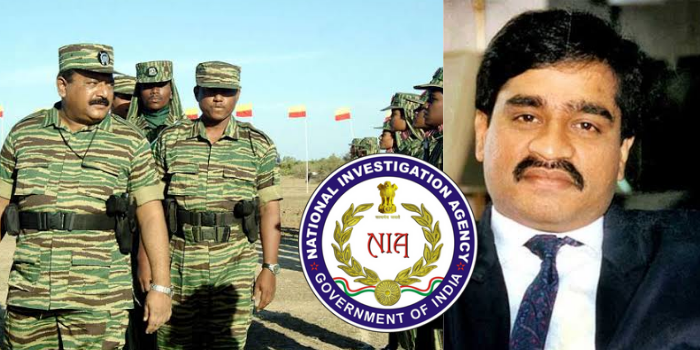New Delhi, June 25: Karachi-based gangster Haji Salim, known for his connections to underworld figure Dawood Ibrahim, has emerged as a key figure in the revival attempts of the Liberation Tigers of Tamil Eelam (LTTE) insurgent group, according to Indian officials.
Salim’s involvement revolves around large-scale smuggling operations (mainly drugs and arms), allegedly supporting the LTTE’s resurgence in Sri Lanka and India.
Indian intelligence agencies have revealed that Salim, responsible for a multi-million-dollar drug network spanning Pakistan and the Indian Ocean, frequently visits Dawood’s residence in Karachi.
There are suspicions that the two criminals collaborate and exploit each other’s resources, supported by Pakistan’s spy agency, the Inter-Services Intelligence (ISI).
Indian intelligence agencies including Narcotics Control Bureau (NCB), the National Investigation Agency (NIA), and the Directorate of Revenue and Intelligence (DRI) are actively identifying Salim’s Indian contacts, as well as dismantling Ibrahim’s D-Company and its criminal network.
Recently, a joint operation conducted by the NCB and the navy led to the seizure of 2,500kg of high-purity methamphetamine, valued at ₹12,000 crore.
The contraband, intercepted in the Indian Ocean, originated from the Makran coast in Balochistan province, following the smuggling route of Iran, Pakistan, and Afghanistan.
In a recent charge sheet filed against 13 individuals connected to the revival of the LTTE in India, NIA disclosed that Sri Lankan drug mafia members were sourcing drugs from Salim. He used various foreign WhatsApp numbers for their illegal trade.
Furthermore, Salim’s name has surfaced in a charge sheet related to the smuggling of 40kg of heroin and pistols using a boat called Al-Soheli, resulting in the arrest of ten Pakistanis by the Gujarat Anti-Terrorist Squad in December last year.
Experts believe that Salim’s syndicate, in collaboration with the ISI and terror outfit Lashkar-e-Taiba, is responsible for overseeing smuggling operations to India, the Maldives, Sri Lanka, and some Middle Eastern countries. Salim’s cartel operates numerous secret laboratories in Balochistan, where heroin packets from Afghanistan are labeled with distinctive symbols or inscriptions.
Approximately 70% of India’s drug trafficking occurs through sea routes, with Salim’s network handling a significant portion of these shipments.
Law enforcement officials have noted similarities between Salim’s modus operandi and that of D-Company in the 1990s, involving mid-sea transfers of contraband from large vessels to smaller fishing boats and dhows.
The growing maritime drug trafficking in the Arabian Sea and the Bay of Bengal poses new challenges for Indian drug law enforcement agencies.
As a response, the Indian government has allocated additional funds to strengthen the monitoring of Indian waters and implement comprehensive inspection procedures for suspected containers at ports.
Efforts are underway to identify and apprehend the key players involved in this criminal network, disrupting the flow of drugs and arms and safeguarding regional security.
International cooperation and joint operations are deemed crucial to effectively dismantle these criminal enterprises and curtail their illicit activities.
The combined threat of the LTTE’s resurgence and the extensive smuggling network spearheaded by Haji Salim, in association with Dawood Ibrahim, underscores the urgency for sustained collaborative efforts in combatting organized crime and terrorism.






